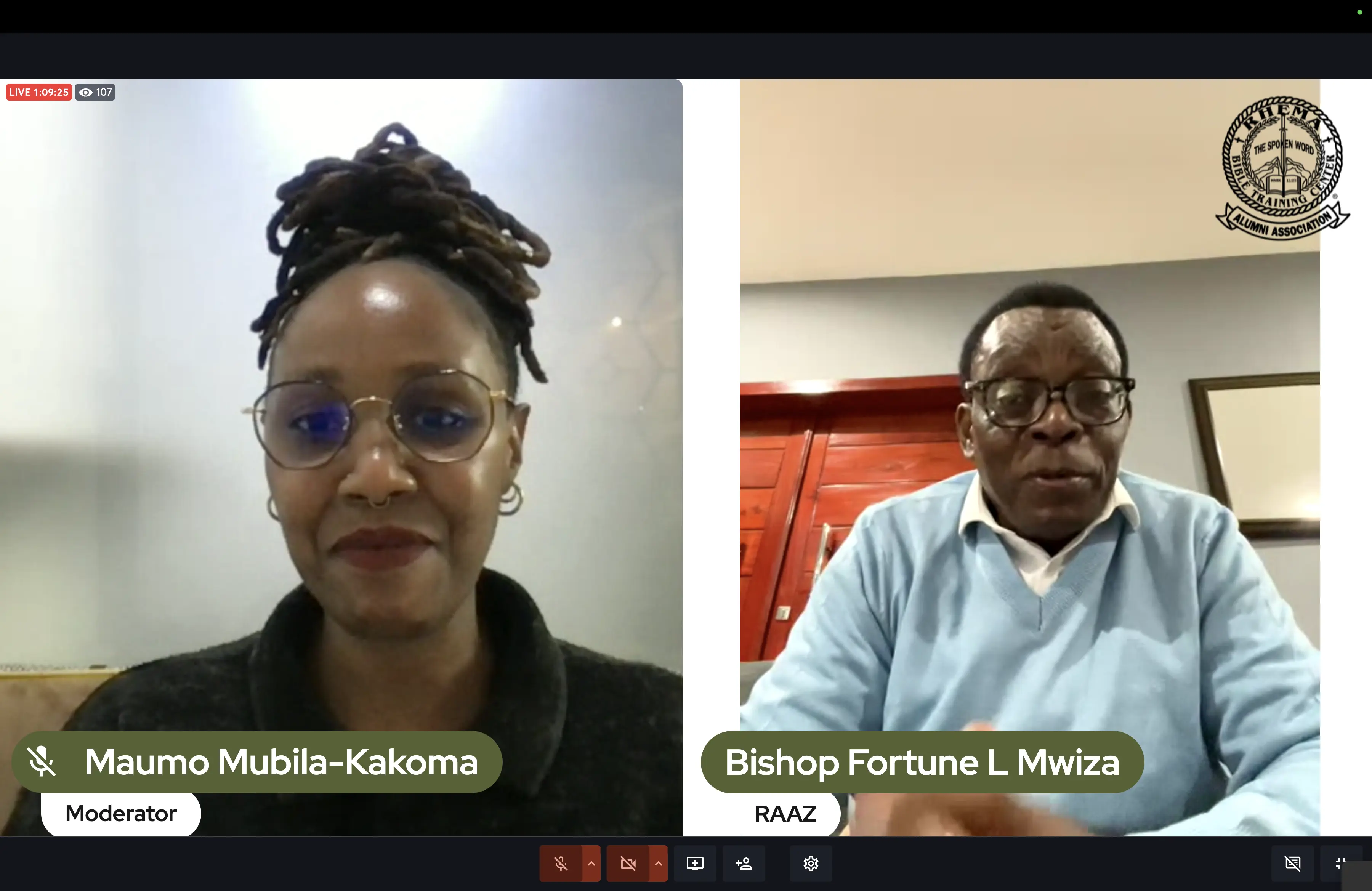
Finding Strength in Solitude: Bishop Fortune Mwiza’s Healing Wisdom from the RAAZ Mental Wellness Webinar
by Silumesii Maboshe (Class of 2024)
Thursday, 31 July 2025
The Thursday, 24 July 2025 RAAZ Mental Wellness Webinar offered deep wells of encouragement. The contributions of Bishop Fortune Mwiza (Presiding Bishop of Deliverance Church and Rhema Zambia lecturer) stood out as an encouragement for leaders navigating hardship. Drawing on personal trials, scriptural insight, and years of shepherding others, Bishop Mwiza’s words carried hope for anyone seeking spiritual and emotional resilience.
1. Love God for who He is, not what He gives
Bishop Mwiza shared a pivotal episode from his ministry journey: after answering God’s call, selling his possessions, and facing unexpected financial hardship in Bible school, he found himself wrestling deeply with God. His honest struggle—questioning God and withdrawing from prayer—culminated with a transforming realization:
Do you love Me for the gifts, or for Me?
This moment led him to anchor his faith in God Himself, not in circumstances or provisions (see Matthew 6:33; Psalm 73:25-26). It’s a call to define our relationship with God by love and trust, not by outcomes.
2. Grief and doubt are human; God’s grace prevails
Bishop Mwiza recounted losing his son, experiencing both pain and questions, but ultimately affirming God’s love and sovereignty. He emphasized that grief is not alien to faith, and healthy lament can coexist with deep trust (Psalm 34:18; Lamentations 3:22-23). In Christ, even our deepest valleys can become places of encounter, growth, and restored identity.
3. The wisdom of withdrawing
Drawing directly from the life of Jesus (Luke 5:16), Bishop Mwiza urged leaders to regularly withdraw for solitude, prayer, and reflection—even in seasons of intense responsibility or pressure.
Solitude is not neglect; it is essential self-care that enables effective ministry to others. It replenishes strength, opens us to God’s wisdom, and clarifies our sense of purpose (Psalm 46:10; Mark 1:35).
4. Ministry is not a solo journey
To avoid burnout and guilt, Bishop Mwiza encouraged leaders to develop and train others, delegating responsibilities and building trustworthy teams (Exodus 18:17-23; 2 Timothy 2:2). Healthy leaders invest in others, ensuring that work continues even when they rest. This approach reflects Jesus, who chose and sent out the twelve apostles after seasons of prayer (Luke 6:12-13).
5. Shame or criticism do not define you
Addressing the pain of public criticism, misunderstanding, or shame—even within ministry—Bishop Mwiza testified that a solid, grace-based identity in Christ brings freedom. Leaning on God’s voice, not the opinions of others, fortifies the heart against wounds (Romans 8:33-39; Isaiah 54:4). He urged leaders to respond to harshness with grace, love, and forgiveness, trusting God to be their vindicator.
Reflective questions for leaders
Bishop Mwiza’s story is a profound reminder: resilience, healing, and wisdom for leadership come not by self-reliance, but by honest lament, strategic withdrawal, and a deep, joyful trust in the One who calls us His own.
- Is my relationship with God rooted in who He is—or in what He does for me?
- Do I carve out regular time for solitude with God, or am I running on empty?
- How am I intentionally empowering and training others to share the load of ministry or leadership?
- Where might I still need to forgive and release the hurtful words or harsh judgments of others?
- What rhythms can I build into my life that affirm both my humanity and my need for God’s restoring presence?